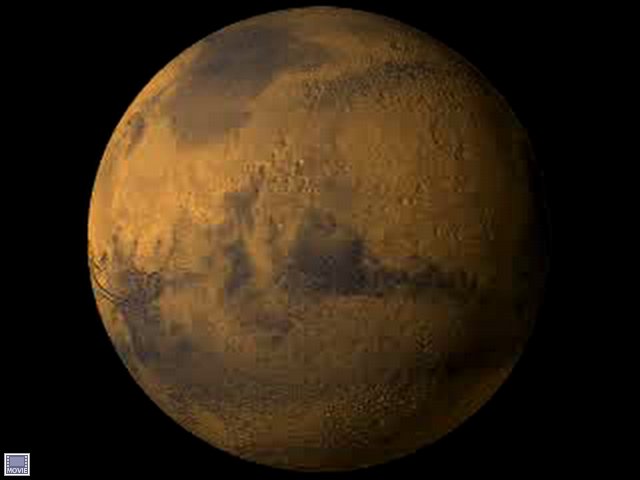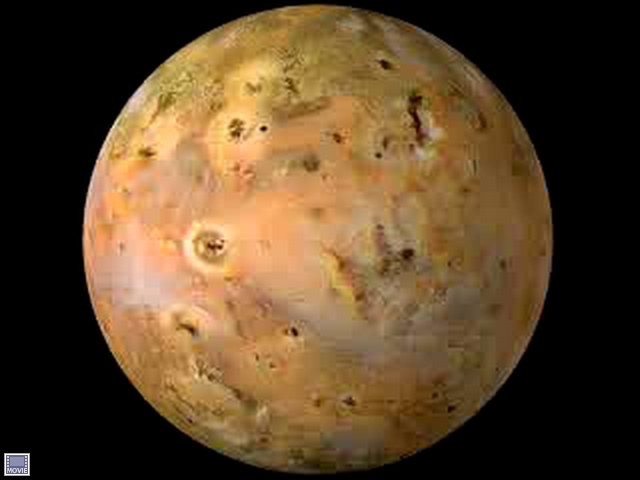Sci-Tech: Where Will Our Next Home Be?
The guys at hubble are beginning to look for 'earth-like' planets outside our solar system...
http://edition.cnn.com/2005/TECH/space/05/09/extrasolar.planets.reut/index.html
Apart from the impending 'magnetic storm' that'll hit earth in the next millennium...
http://www.pbs.org/wgbh/nova/minutes/q_3016.html
(need Quicktime player to view)
...earth as we know it has got a shelf life - the clock is ticking. Where will we go?
The logical first stop may well be Mars. It will, of course, have to be terraformed. That is to say we'll have to introduce 'greenhouse gases' such as CFC's into the Martian atmosphere to facilitate a liveable environment - this after we ascertain whether or not there is substantial water...

http://www.solarviews.com/eng/mars.htm
Titan? This moon of Saturn has a nitrogen rich atmosphere, perfect for amino acid assimilation (future life), but at -178 degress celcius it is uninhabitable for humans as yet...

http://www.solarviews.com/eng/titan.htm
Europa? This moon orbiting Jupiter may hold the answer. Roughly the size of our moon, it is covered by a layer of ice, under which it has been postulated, lies an ocean. Obviously we, as a specie would have to adapt to a life under the sea...

http://www.nineplanets.org/europa.html
Perhaps Io? Another of Jupiter's moons, it is similar in size to Europa, but vastly different in nature. It's surface is volcanic and sulphurous, but as has been discovered in the oceans right here on earth, life can be sustained in a hot, sulphur rich environment...

http://www.nineplanets.org/io.html
Any move to one of these moons will, of course be temporary as our sun is swelling and will eventually engulf much of the solar system, earth included...
http://www.bbc.co.uk/science/space/stars/death/
We have time, but where to? Our closest galaxy is Andromeda. Our own galaxy, the Milky Way, is heading toward Andromeda, and will eventually collide with it. The two galaxies will merge into a new galaxy, which in turn, will travel toward the 'Libra supercluster' of galaxies. But let's not get ahead of ourselves. Before then we'll of course have to find another solar system at the very least.
The last time man ventured to another world was the Apollo missions to the moon. These ended in 1972...

http://nssdc.gsfc.nasa.gov/planetary/lunar/apollo.html
Since then we've done relatively little. It isn't currently seen as a priority. Isn't it sad that our measurement of time is so short sighted in the grander scheme of things? A thousand years is regarded as an eternity... in universal terms it's a spit in the bucket. We're the first specie to inhabit earth that has the means- and therefore a say in the affectation of our eventual future. I hope we remain conscious of this fact and take advantage of it.
http://edition.cnn.com/2005/TECH/space/05/09/extrasolar.planets.reut/index.html
Apart from the impending 'magnetic storm' that'll hit earth in the next millennium...
http://www.pbs.org/wgbh/nova/minutes/q_3016.html
(need Quicktime player to view)
...earth as we know it has got a shelf life - the clock is ticking. Where will we go?
The logical first stop may well be Mars. It will, of course, have to be terraformed. That is to say we'll have to introduce 'greenhouse gases' such as CFC's into the Martian atmosphere to facilitate a liveable environment - this after we ascertain whether or not there is substantial water...

http://www.solarviews.com/eng/mars.htm
Titan? This moon of Saturn has a nitrogen rich atmosphere, perfect for amino acid assimilation (future life), but at -178 degress celcius it is uninhabitable for humans as yet...

http://www.solarviews.com/eng/titan.htm
Europa? This moon orbiting Jupiter may hold the answer. Roughly the size of our moon, it is covered by a layer of ice, under which it has been postulated, lies an ocean. Obviously we, as a specie would have to adapt to a life under the sea...

http://www.nineplanets.org/europa.html
Perhaps Io? Another of Jupiter's moons, it is similar in size to Europa, but vastly different in nature. It's surface is volcanic and sulphurous, but as has been discovered in the oceans right here on earth, life can be sustained in a hot, sulphur rich environment...

http://www.nineplanets.org/io.html
Any move to one of these moons will, of course be temporary as our sun is swelling and will eventually engulf much of the solar system, earth included...
http://www.bbc.co.uk/science/space/stars/death/
We have time, but where to? Our closest galaxy is Andromeda. Our own galaxy, the Milky Way, is heading toward Andromeda, and will eventually collide with it. The two galaxies will merge into a new galaxy, which in turn, will travel toward the 'Libra supercluster' of galaxies. But let's not get ahead of ourselves. Before then we'll of course have to find another solar system at the very least.
The last time man ventured to another world was the Apollo missions to the moon. These ended in 1972...

http://nssdc.gsfc.nasa.gov/planetary/lunar/apollo.html
Since then we've done relatively little. It isn't currently seen as a priority. Isn't it sad that our measurement of time is so short sighted in the grander scheme of things? A thousand years is regarded as an eternity... in universal terms it's a spit in the bucket. We're the first specie to inhabit earth that has the means- and therefore a say in the affectation of our eventual future. I hope we remain conscious of this fact and take advantage of it.


0 Comments:
Post a Comment
<< Home